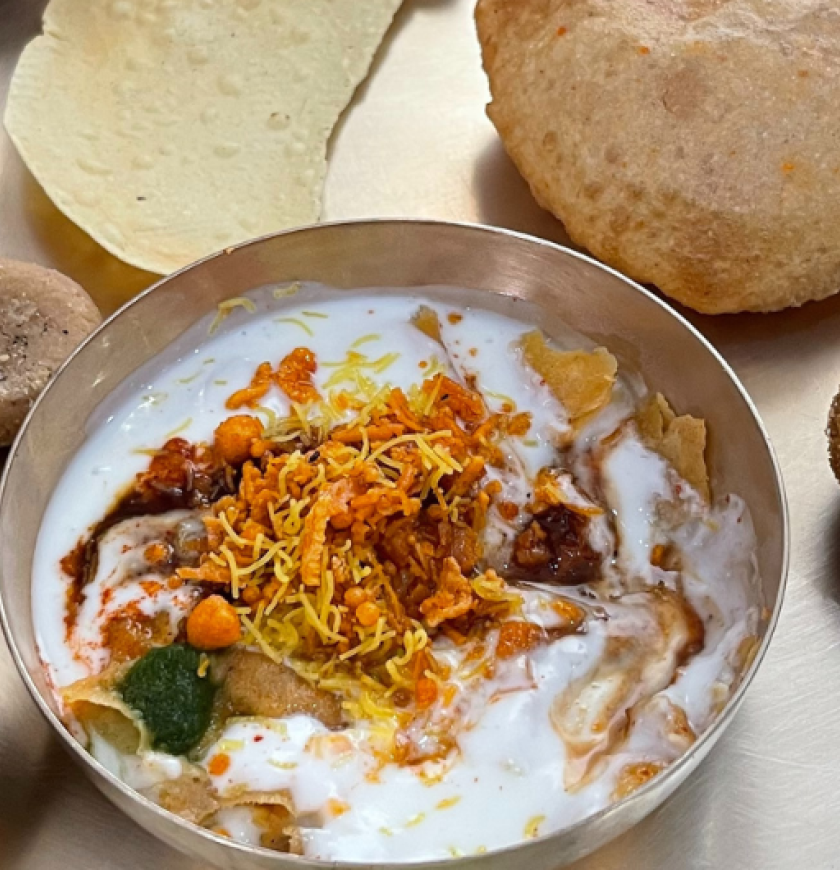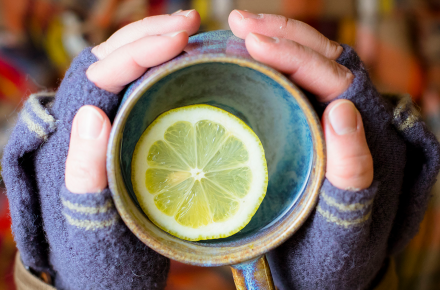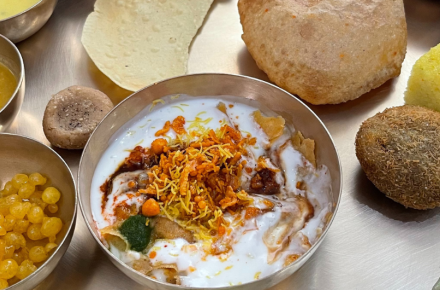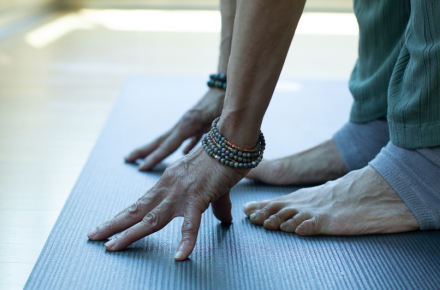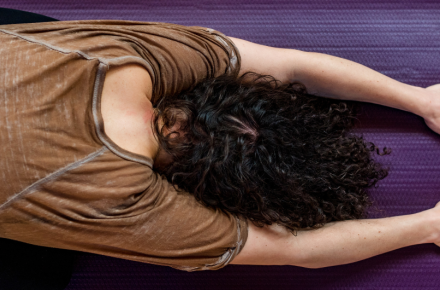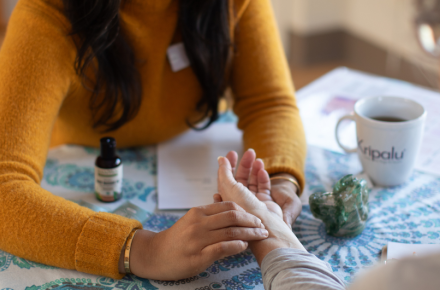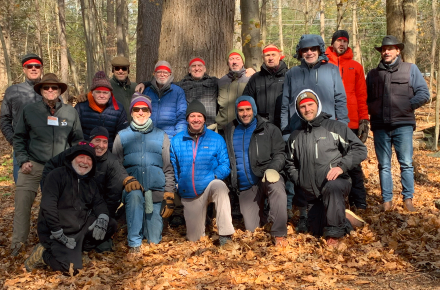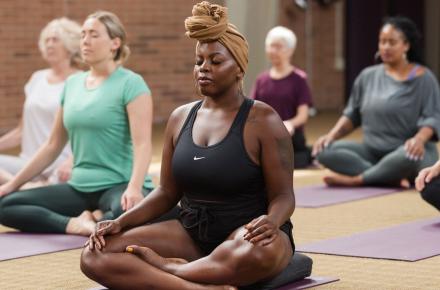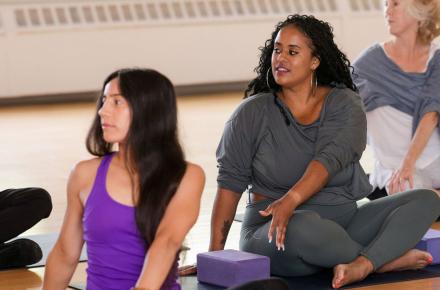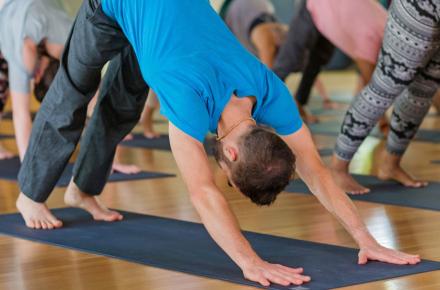Five Healthy Eating Tips for Flying

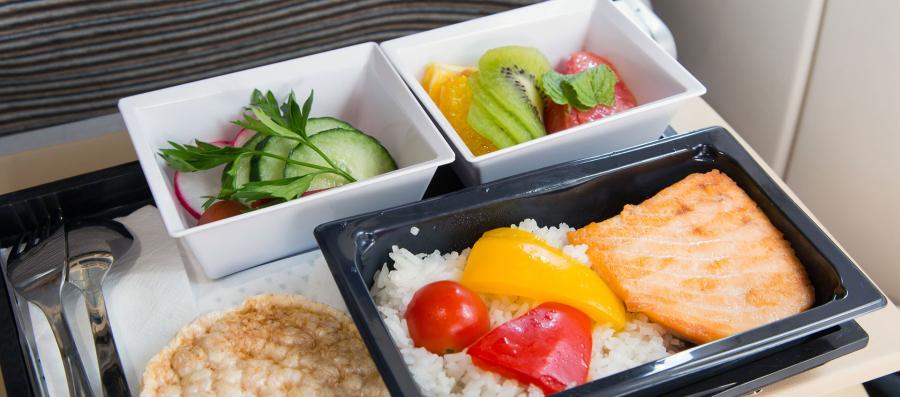
I love to fly. Whether it’s a teaching trip, rejuvenating vacation, or precious family adventure, I savor quietly gazing at the world from a window in the clouds. Contemplating the vast expanse of sky has always been a sweet kind of meditation for me (Nadi Shodhana and journaling on the plane are marvelous, too!).
What hasn’t always been sweet, though, is the food. Airport and airplane food. Travel excitement often crashes when hunger strikes in that food desert. There’s plenty of soda, candy, coffee, alcohol, and crunchy salt to go around, but finding healthy, nourishing, tasty food can be a real challenge.
Thankfully, some airports have added nourishing options to their food courts in recent years (my personal favorite: Boston’s Logan Airport now has a Berkshire Farms Market, with healthy juices, fruits, and salads from farms near Kripalu!). But, once you’re on the plane, healthy food choices are incredibly limited. This lack of nourishing food often tempts people to eat whatever is offered, and upon landing, leaves travelers feeling swollen from too much salt, jittery from too much sugar, or dazed from a lack of sustenance—far from optimal for a healthy excursion.
In Ayurvedic terms, travel is governed by vata dosha, a wind-like energy that controls all physical, energetic, and mental movement (including nervous and digestive system flows). Despite constitutional differences, everyone has vata dosha. This moving energy is made of air and space—elements which are dry, cold, light, and mobile.
Flying has similar qualities to vata dosha (plane cabins are remarkably cold and dry—and planes fly incredibly fast at very high altitudes). When travel is smooth and vata remains balanced, our systems run well—maintaining emotional poise and a happy belly. But when travel stressors and poor food choices increase vata’s momentum, our systems get bombarded by too much speed, dryness, and coldness, leaving vata-aggravated travelers feeling anxious, frazzled, dried-out, or constipated.
The dietary challenge when flying: Much of what’s offered is cold, dry, and rough—like iced beverages, salty pretzels, and hard nuts—foods with qualities similar to vata dosha. When the plane is cold and dry, and the food is cold and dry, those cold, dry qualities increase in the body quickly, leaving an uncomfortable vata imbalance.
Ayurveda’s healthy eating tips can help. As a traveling teacher for almost 15 years, I’ve found these simple diet practices make flights so much more enjoyable and nourishing. Next time you’re planning a flight, try a few of these time-tested tips to lift your travel joy.
- BYOB (Bring Your Own Bento): Invest in an eco-friendly bento box or stainless steel meal container to bring your own food in comfort and style. Slide it into your “under seat” carryon bag, so it’s easy to reach on the plane for a healthy in-flight meal. Travel containers can be a spill-proof life saver for healthy eating. Upon landing, refill it with healthy options during your trip (tucked in a briefcase for a wholesome work trip meal, or tossed in a beach bag for a nutritious post-swim snack). Plan to load it back up before flying home to ensure a healthy return flight; swing by the hot bar at the natural foods store or grab takeout from a healthy restaurant. A good in-flight meal requires a little planning.
- Pack something cooked: To ease digestion in a vata-heightened environment, Ayurveda recommends favoring cooked foods over raw. Although you may not be able to keep food warm for your flight, room-temperature cooked food is generally easier to digest than raw. Vegan food holds up best on flights, so you might avoid dairy and meat for longer trips. Fill your travel container with seasonal roasted veggies (in winter, I love roasted beets, sweet potatoes, carrots, and walnuts), steamed greens (broccolini, bok choy, or peas), and some quinoa. Or pack a homemade organic egg and spinach burrito. Easy foods to cook, pack, and digest.
- Eat first: Early flight? Plan to eat a substantial meal before you hop in the Uber. Too often, we rush to catch a flight, grabbing a granola bar on the way out, and planning to find something at the airport. But sadly, as we know, there’s rarely anything healthy at the airport, so hungry travelers are forced to buy sugar-coated muffins or microwaved eggs. Instead of winging it, schedule time for a seated, relaxed, well-rounded meal before leaving for the airport. Seriously, schedule your pre-flight meal. A nourishing meal sets you up for a more contented travel experience, and prevents vata dosha from getting revved up on the flight.
- Drink hot tea: To stay hydrated while flying, and to avoid aggravating vata dosha with cold drinks, bring your own herbal tea bags. Ask for hot water during the beverage service, and steep your own tea. I bring caffeine-free tulsi tea with me on every flight. Tulsi helps soothe the nervous system—great when feeling anxious or scattered. It’s also a digestive aid, breath freshener, headache reducer, and congestion-clearer—perfect when folks on the plane are coughing and sneezing.
- Choose healthy snacking options: If you tend to crave chocolate and chips when traveling, pack your own. You’ll save money by avoiding the high airport prices, and you can choose better alternatives. Sweet and salty tastes pacify vata dosha, so they’re great for travel, but they must be high-quality to achieve the vata-soothing effects. Plan for the majority of your sweet snacks to be dried organic fruits (I love nibbling on medjool dates, cherries, apricots, and pears), which may very well satisfy your sweet craving. Pack a little organic dark chocolate, too, in case that’ll satisfy you best. Limit the salty taste by packing a handful of organic chips or crackers—just enough to do the trick without sending you into a munching, crunching, salt-bloating frenzy. Even better—pack some homemade organic kale chips with a little sea salt.
With proper planning, we can keep vata dosha harmonized while we’re in the sky, preventing food woes and ensuring good digestion.
Find out about programs with Larissa Hall Carlson at Kripalu.
© Kripalu Center for Yoga & Health. All rights reserved. To request permission to reprint, please email editor@kripalu.org.




